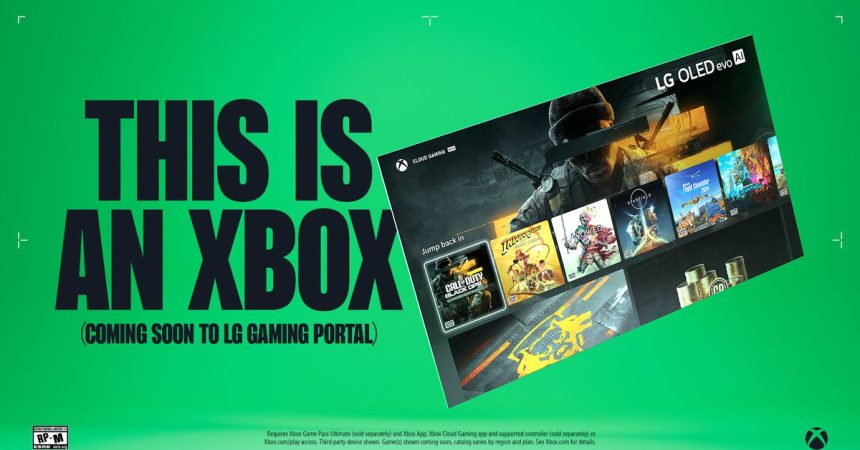Xbox Cloud Gaming, Microsoft’s ambitious foray into the realm of cloud-based gaming, is poised to expand its reach by integrating with LG Smart TVs later this year. This collaboration, announced at CES 2025, promises to bring the vast library of Xbox Game Pass titles and select owned games directly to LG’s latest Smart TVs, seamlessly blurring the lines between traditional console gaming and the convenience of cloud streaming. This integration eliminates the need for a dedicated Xbox console, allowing gamers to access their favorite titles directly through the LG Gaming Portal, provided they possess an Xbox Game Pass Ultimate subscription. While specific compatible LG TV models remain undisclosed, this partnership signifies a significant stride towards making gaming more accessible and ubiquitous.
The strategic alliance between Microsoft and LG underscores a broader trend in the gaming industry: the shift towards platform agnosticism. By leveraging the power of cloud technology, Microsoft aims to decouple the gaming experience from the constraints of hardware. This allows gamers to access their games on a wider array of devices, from smartphones and tablets to PCs and now, Smart TVs. The integration with LG Smart TVs represents a strategic move to capture a substantial segment of the living room entertainment market, effectively transforming the TV into a versatile gaming hub. This move aligns with Microsoft’s vision of “This is an Xbox,” highlighting the company’s commitment to providing a unified gaming experience across a diverse ecosystem of devices.
While details regarding specific LG TV models, service availability, and supported countries remain scant, Microsoft assures that more information will be unveiled in the coming months. The current ambiguity surrounding compatible models leaves potential users in anticipation, eager to learn whether their existing or future LG Smart TVs will support this groundbreaking feature. This expansion follows a similar partnership with Samsung, where Xbox Cloud Gaming was previously integrated into select Samsung Smart TVs, indicating Microsoft’s proactive approach to expanding its cloud gaming footprint across various smart TV platforms. The gradual rollout across different TV brands suggests a deliberate strategy to test and refine the technology while building partnerships within the consumer electronics industry.
The potential impact of Xbox Cloud Gaming on LG Smart TVs is substantial, potentially revolutionizing how people consume interactive entertainment. By eliminating the need for a dedicated gaming console, the barrier to entry for gaming is significantly lowered. This accessibility opens up the world of Xbox gaming to a wider audience, including those who may have been deterred by the cost or complexity of traditional consoles. Furthermore, the convenience of cloud gaming allows for seamless transitions between devices, enabling gamers to pick up where they left off on their smartphones, tablets, or PCs, and continue their gameplay on the big screen.
The integration of Xbox Cloud Gaming into LG Smart TVs raises several questions regarding the technical implementation and user experience. Factors such as input lag, streaming quality, and controller compatibility will play a crucial role in determining the overall success of this venture. Microsoft’s experience with existing cloud gaming platforms will likely inform the optimization and fine-tuning necessary to ensure a smooth and responsive gaming experience on LG Smart TVs. The success of this integration hinges on delivering a comparable or superior experience to traditional console gaming, addressing concerns about latency and visual fidelity that often accompany cloud-based solutions.
The future of gaming appears increasingly intertwined with cloud technology, and the partnership between Microsoft and LG represents a significant step in this direction. By bringing Xbox Cloud Gaming to LG Smart TVs, Microsoft is not only expanding the reach of its gaming ecosystem but also shaping the future of interactive entertainment. The convenience, accessibility, and potential cost savings offered by cloud gaming are poised to disrupt the traditional gaming landscape, making it more inclusive and readily available to a broader audience. The success of this partnership will likely influence future collaborations and integrations, solidifying the role of cloud gaming as a dominant force in the entertainment industry.



